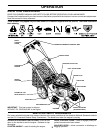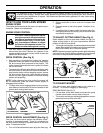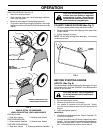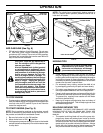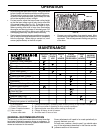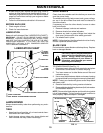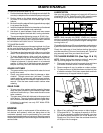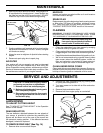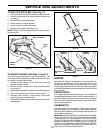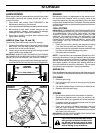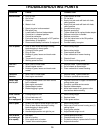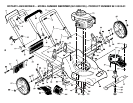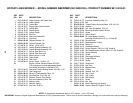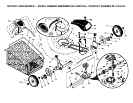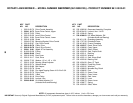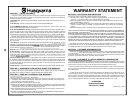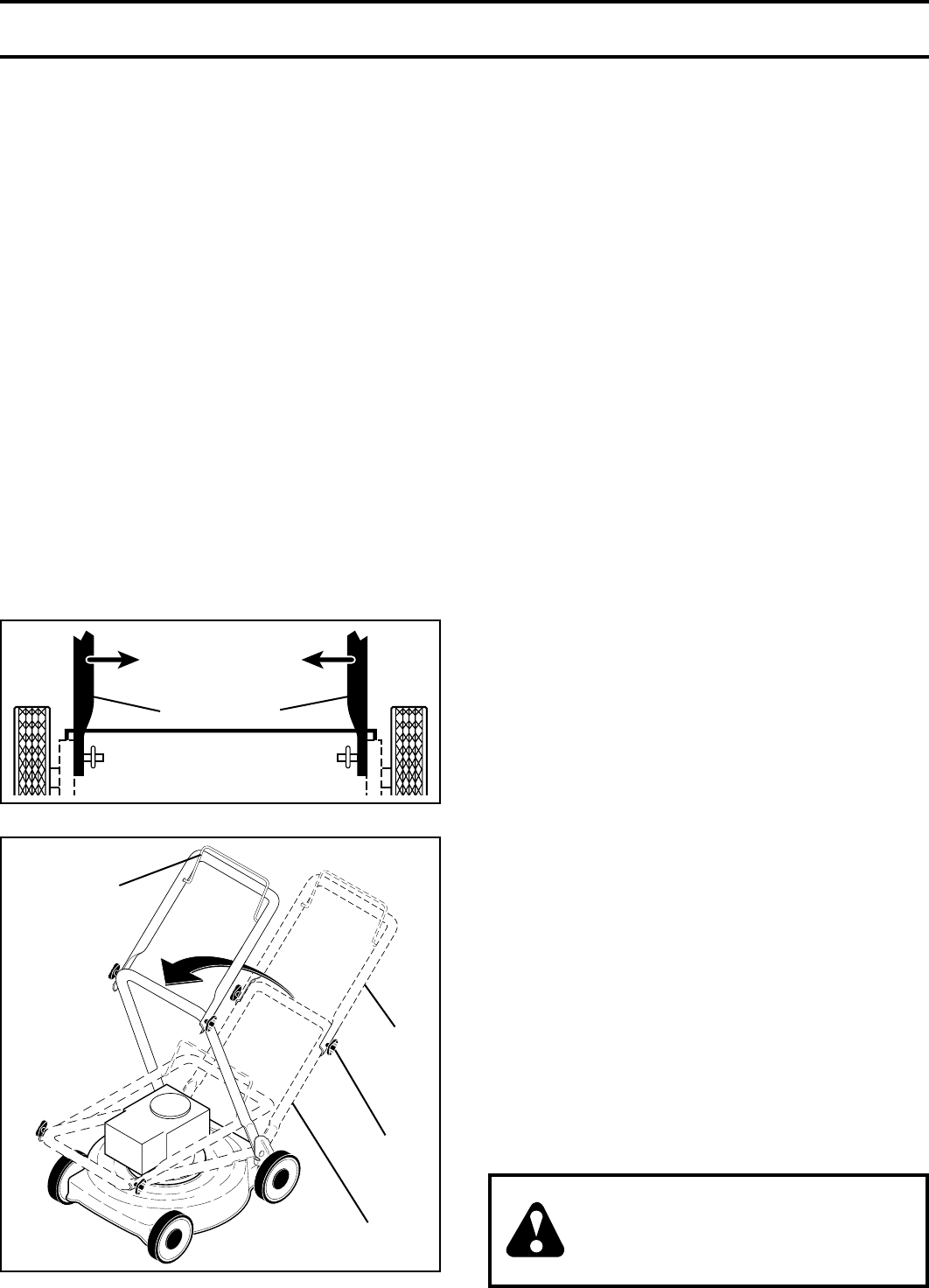
14
STORAGE
ENGINE
Maintenance, re pair, or re placement of the emission con-
trol de vices and sys tems, which are be ing done at the
customers expense, may be performed by any non-road
engine repair es tablishment or individual. Warranty repairs
must be performed by an authorized engine man ufacturer's
service outlet.
FUEL SYSTEM
IMPORTANT: IT IS IMPORTANT TO PREVENT GUM DEPOSITS
FROM FORMING IN ESSENTIAL FUEL SYSTEM PARTS SUCH
AS CARBURETOR, FUEL FILTER, FUEL HOSE, OR TANK
DURING STORAGE. ALCOHOL BLENDED FUELS (CALLED
GASOHOL OR USING ETHANOL OR METHANOL) CAN
ATTRACT MOISTURE WHICH LEADS TO SEPARATION AND
FORMATION OF ACIDS DURING STORAGE. ACIDIC GAS
CAN DAMAGE THE FUEL SYSTEM OF AN ENGINE WHILE
IN STORAGE.
• Empty the fuel tank by starting the engine and letting
it run until the fuel lines and carburetor are empty.
• Never use engine or carburetor cleaner products in the
fuel tank or permanent damage may occur.
• Use fresh fuel next season.
NOTE: Fuel stabilizer is an acceptable alternative in mini-
mizing the formation of fuel gum deposits during stor age.
Add stabilizer to gasoline in fuel tank or storage container.
Always follow the mix ratio found on stabilizer container.
Run engine at least 10 minutes after adding stabilizer to
allow the stabilizer to reach the carburetor. Do not empty
the gas tank and carburetor if using fuel stabilizer.
ENGINE OIL
Drain oil (with engine warm) and replace with clean engine oil.
(See “ENGINE” in the Maintenance section of this manual).
CYLINDER
1. Remove spark plug.
2. Pour one ounce (29 ml) of oil through spark plug hole
into cylinder.
3. Pull starter handle slowly a few times to distribute oil.
4. Replace with new spark plug.
OTHER
• Do not store gasoline from one season to another.
• Replace your gasoline can if your can starts to rust.
Rust and/or dirt in your gasoline will cause problems.
• If possible, store your unit indoors and cover it to give
protection from dust and dirt.
• Cover your unit with a suitable protective cover that
does not retain moisture. Do not use plastic. Plastic
cannot breathe, which allows condensation to form and
will cause your unit to rust.
IMPORTANT: NEVER COVER MOWER WHILE ENGINE AND
EXHAUST AREAS ARE STILL WARM.
CAUTION: Never store the lawn mower
with gasoline in the tank inside a build-
ing where fumes may reach an open
fl ame or spark. Allow the engine to cool
before storing in any enclosure.
Immediately prepare your lawn mower for storage at the end of the season or if the unit will not be used for 30 days or more.
SQUEEZE
TO ADJUST
FIG. 18
LOWER HANDLE
LAWN MOWER
When lawn mower is to be stored for a period of time, clean
it thoroughly, remove all dirt, grease, leaves, etc. Store in
a clean, dry area.
1. Clean entire lawn mower (See “CLEANING” in the
Maintenance section of this manual).
2. Lubricate as shown in Maintenance section of this manual.
3. Be sure that all nuts, bolts, screws, and pins are se-
curely fastened. Inspect moving parts for damage,
breakage and wear. Replace if necessary.
4. Touch up all rusted or chipped paint surfaces; sand
lightly before painting.
HANDLE (See Figs. 18 and 19)
You can fold your lawn mower handle for storage.
1. Squeeze the bottom ends of the lower handle toward
each other until the lower handle clears the handle
bracket, then move handle forward.
2. Loosen upper handle mounting bolts enough to allow
upper handle to be folded back.
IMPORTANT: WHEN FOLDING THE HANDLE FOR STORAGE
OR TRANSPORTATION, BE SURE TO FOLD THE HANDLE AS
SHOWN OR YOU MAY DAMAGE THE CONTROL CABLES.
• When setting up your handle from the storage position,
lower han dle will automatically lock into mow ing position.
FIG. 19
MOWING
POSITION
OPERATOR
PRESENCE
CONTROL BAR
FOLD
FORWARD
FOR
STORAGE
LOWER
HANDLE
HANDLE
KNOB
UPPER
HANDLE



